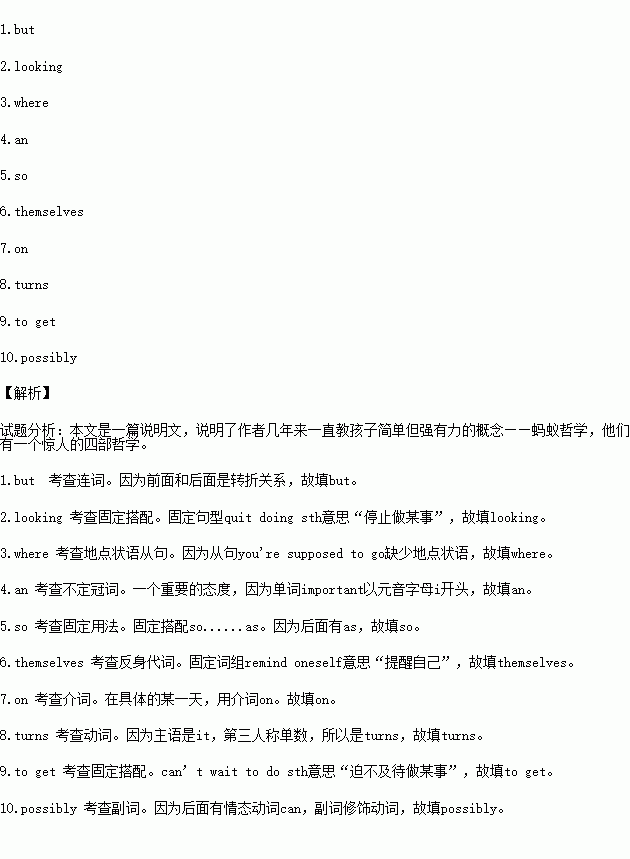��Ŀ����
����
�Ķ�������ϣ��ڿհ״������ʵ������ݣ�������3�����ʣ��������ڵ��ʵ���ȷ��ʽ��
Over years��I've been teaching children about a simple 1. powerful concept--the ant philosophy��They have an amazing four��part philosophy��First, ants never quit��They��ll climb over��they��ll climb under��and they��ll climb around��They keep looking for another way��What a neat(�˲����)philosophy it is to never quit2. (look) for a way to get 3. you are supposed to go ! Second, ants think about winter and summer��That��s 4._ important attitude��You can��t be 5. naive(���ɵ�) as to think summer will last forever��People who have a little experience are clear about this��So ants are gathering their winter food in the middle of summer��It��s important to be realistic��You have got to think about rocks as you enjoy the sand and sun��Think ahead��The third part is that ants think about summer all winter��During the winter��they remind 6. ,��This won��t last long��we��11 soon be out of here����And 7. the first warm day��the ants are out��If it 8. (turn)cold again, they will dive back down. But they come out again if it is warm��They can��t wait 9. (get)out��Last��how much will an ant gather during the summer to prepare for the winter? All that it 10. (possible)can��What a great philosophy to have��the ant philosophy: never give up, look ahead, stay positive and do all you can��
 �Ķ��쳵ϵ�д�
�Ķ��쳵ϵ�д�

